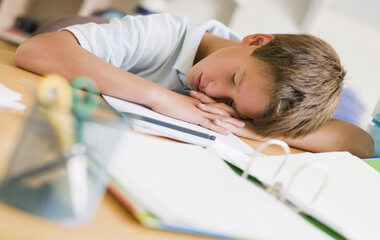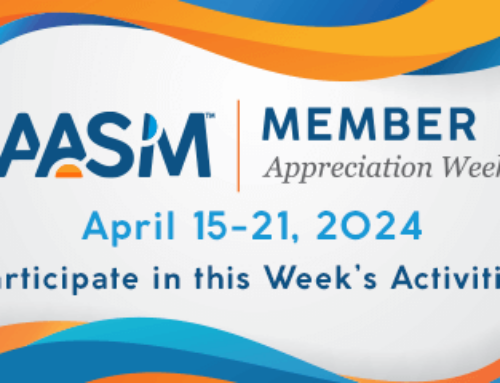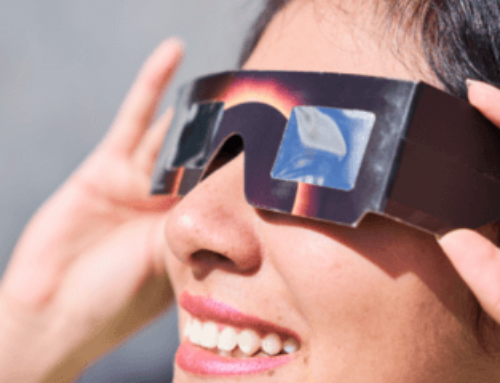DARIEN, IL – A new study conducted among more than 177,000 students suggests that insufficient sleep duration is associated with an unhealthy lifestyle profile among children and adolescents.
Results show that insufficient sleep duration was associated with unhealthy dietary habits such as skipping breakfast (adjusted odds ratio 1.30), fast-food consumption (OR 1.35) and consuming sweets regularly (OR 1.32). Insufficient sleep duration also was associated with increased screen time (OR 1.26) and being overweight/obese (OR 1.21).
“Approximately 40 percent of schoolchildren in the study slept less than recommended,” said senior author Labros Sidossis, PhD, distinguished professor and chair of the Department of Kinesiology and Health at Rutgers University in New Brunswick, New Jersey. “Insufficient sleeping levels were associated with poor dietary habits, increased screen time and obesity in both genders.”
The study results are published in the Oct. 15 issue of the Journal of Clinical Sleep Medicine.
The American Academy of Sleep Medicine recommends that children 6 to 12 years of age should sleep nine to 12 hours on a regular basis to promote optimal health. Teenagers 13 to 18 years of age should sleep eight to 10 hours.
Population data were derived from a school-based health survey completed in Greece by 177,091 children (51 percent male) between the ages of 8 and 17 years. Dietary habits, usual weekday and weekend sleeping hours, physical activity status, and sedentary activities were assessed through electronic questionnaires completed at school. Children who reported that they usually sleep fewer than nine hours per day, and adolescents sleeping fewer than eight hours per day, were classified as having insufficient sleep. Anthropometric and physical fitness measurements were obtained by physical education teachers.
A greater proportion of males than females (42.3 percent versus 37.3 percent) and of children compared with adolescents (42.1 percent versus 32.8 percent) reported insufficient sleep duration. Adolescents with an insufficient sleep duration also had lower aerobic fitness and physical activity.
“The most surprising finding was that aerobic fitness was associated with sleep habits,” said Sidossis. “In other words, better sleep habits were associated with better levels of aerobic fitness. We can speculate that adequate sleep results in higher energy levels during the day. Therefore, children who sleep well are maybe more physically active during the day and hence have higher aerobic capacity.”
The authors noted that the results support the development of interventions to help students improve sleep duration.
“Insufficient sleep duration among children constitutes an understated health problem in Westernized societies,” Sidossis said. “Taking into consideration these epidemiologic findings, parents, teachers and health professionals should promote strategies emphasizing healthy sleeping patterns for school-aged children in terms of quality and duration.”
###
The study was supported by the Hellenic Ministry of Education and Religious Affairs, Secretariat General of Sports, Greek Organisation of Football Prognostics S.A. (OPAP), Nestlé Hellas S.A., and the Department of Nutrition and Dietetics Graduate Program at Harokopio University of Athens.
To request a copy of the study, “Insufficient sleep duration is associated with dietary habits, screen time, and obesity in children,” or to arrange an interview with the study author or an AASM spokesperson, please contact the AASM at 630-737-9700 or media@aasm.org.
The monthly, peer-reviewed Journal of Clinical Sleep Medicine is the official publication of the American Academy of Sleep Medicine, a professional membership society that improves sleep health and promotes high quality, patient-centered care through advocacy, education, strategic research, and practice standards. The AASM encourages patients to talk to their doctor about sleep problems and visit SleepEducation.org for more information about sleep, including a searchable directory of AASM-accredited sleep centers.









